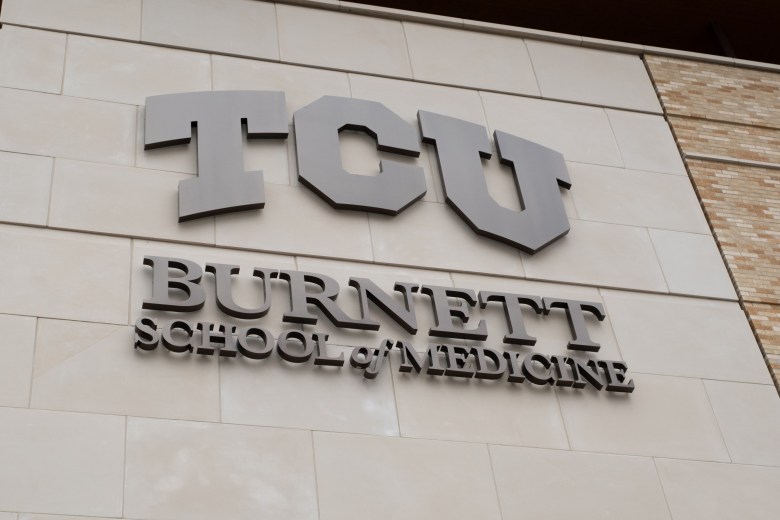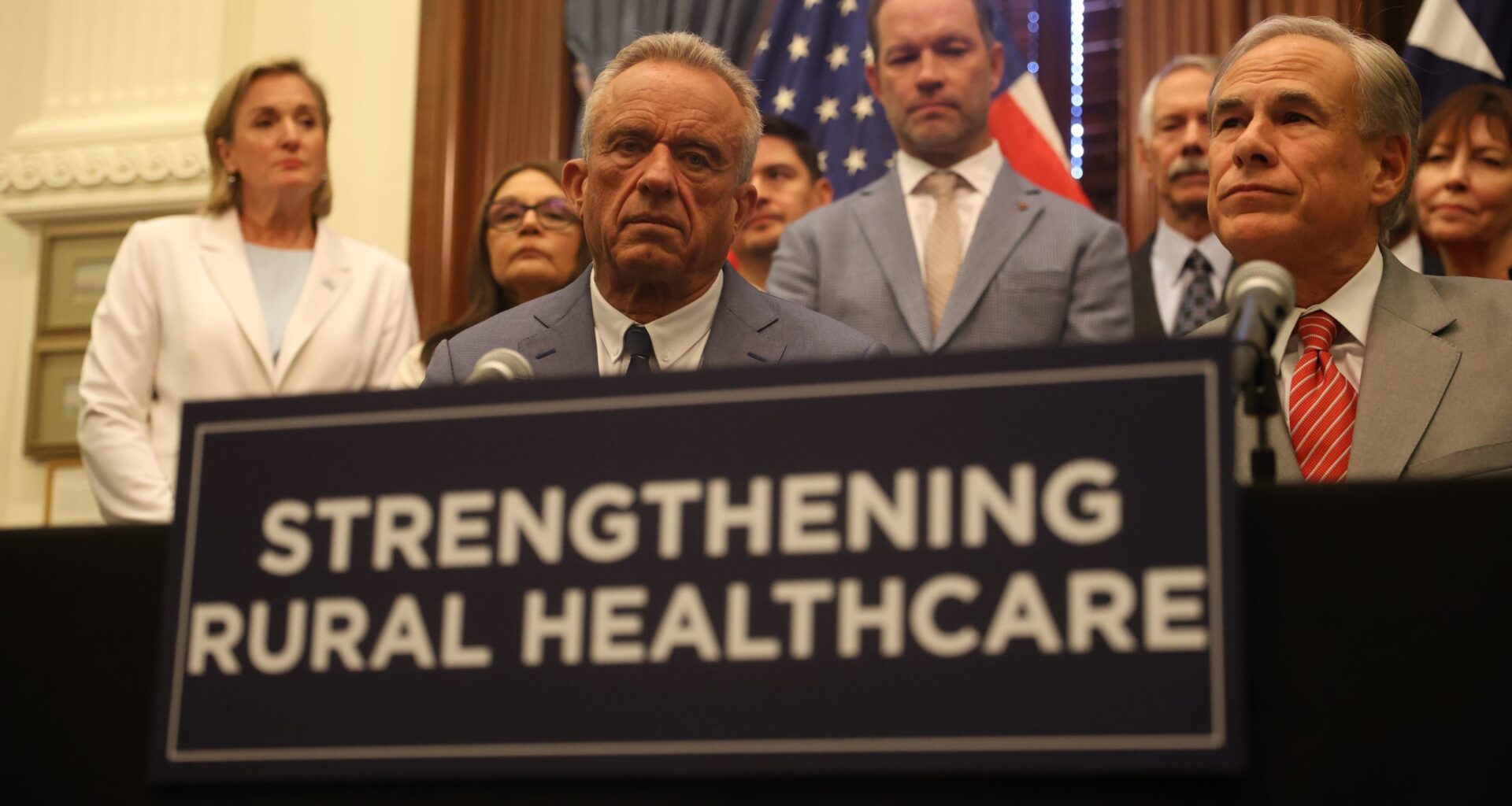The federal government slashed a $15 million grant aimed at lowering maternal mortality rates in North Texas.
The $15 million grant was awarded to the North Texas Maternal Health Accelerator, a coalition created to apply for the funds.
The federal money was part of Health Care Rewards to Achieve Improved Outcomes, or HEROES, a program that began accepting proposals last year. The grant was requested through the Maternal Health Accelerator, led by the Burnett School of Medicine at Texas Christian University’s and UT Southwestern, and managed by the Child Poverty Action Lab, which brought together five local health systems.
As part of the Advanced Research Projects Agency for Health, or ARPA-H, the program looked to support “radically different” local efforts at “creating preventative care incentives in the health market,” according to the program website. The Biden-era program had $100 million to allocate toward efforts across the nation.
The grant was expected to be matched by $15 million in funds raised privately by TCU and UT Southwestern and another $15 million from insurance providers.
At a June meeting, My Health My Resources of Tarrant County, or MHMR, board members were told the region was awarded the grant earlier this year. Award negotiations were ongoing this summer.
The county experiences higher rates of maternal mortality in comparison to state and federal levels, and the award was meant to combat the problem in a way that could be a model for the rest of the country.
The region was one of two offered the grant for work in maternal health, a senior director at the Child Poverty Action Lab said at the meeting. The director noted that a planned announcement was expected in the fall.
Cuts to the national program, however, have left local officials scrambling. Across the county, the cuts will sacrifice $200 million of local investment, according to POLITICO Pro.
The North Texas proposal spearheaded by TCU and UT Southwestern received the maximum amount of funding an applicant could receive.
It isn’t clear how much has been raised locally for the Maternal Health Accelerator. However, the coalition began operating in December 2024 with $17.5 million in foundation commitments. More recently, the Arlington Tomorrow Foundation committed $1 million to the initiative. The foundation’s contribution will help launch a postpartum hypertension management program in Arlington, according to the press release.
Judy Bernas, chief communication and strategy officer at the TCU School of Medicine, said the goal of the accelerator was to reduce childbirth complications by 20% over the next three years and “develop a sustainable scalable model” to help improve maternal health.
 TCU Burnett School of Medicine Feb. 12, 2024. (Camilo Diaz | Fort Worth Report)
TCU Burnett School of Medicine Feb. 12, 2024. (Camilo Diaz | Fort Worth Report)
The TCU School of Medicine said in a statement that they are “committed to making the broadest impact possible” in how they prepare future healthcare leaders and support the community.
“Importantly, we will continue to listen to the priorities of officials and community colleagues while generating insights and deploying services to improve the lives of those we serve,” the statement said.
UT Southwestern Medical Center did not respond to a request for comment by publication.
Tarrant County officials were made aware of the cuts Friday and have been working to reverse the cuts. Gov. Greg Abbott met this week in Austin with U.S. secretary of Health and Human Services, Robert F. Kennedy Jr., but the governor’s office said any opportunity for state dollars to replace the federal cuts would have to be decided by state lawmakers.
State Rep. Charlie Geren, R-Fort Worth, said he was unaware of the cuts and declined to comment.
In a statement to POLITICO Pro, a Department of Health and Human Services spokesperson said they are “constantly evaluating its programs and projects to ensure they are aligned with Administration priorities.”
The maternal mortality rate for Black women in the region is the second highest in the state.
Led by Mayor Mattie Parker, local organizations began spearheading efforts to solve the high maternal mortality rate in 2022. This spurred the creation of the Tarrant County Maternal & Infant Health Coalition, which brought together 16 entities to help build a united approach in improving access to resources.
Alongside a report published in 2024 outlining the crisis, the coalition has worked at offering localized solutions, including the distribution of iron pills to expecting mothers free of charge and improving direct communication between mothers and their care teams.
The efforts of the North Texas Maternal Health Coalition allowed regional leaders to apply for the federal grant.
Maternal and infant care has been a focal point for the mayor throughout her tenure. Parker previously referenced the need for a “catalytic effort,” which led to the creation of the coalition, and has lauded additional initiatives to enhance maternity health.
In a statement this week to the Fort Worth Report, Parker did not address the funding cut, but referenced the city’s continuous efforts to take care of mothers and their children.
“There are countless individuals and organizations invested in our mission and working tirelessly to create real impact in our community for years to come, and we will use this momentum to continue improving the health and well-being of our moms and babies in North Texas,” Parker said.
This story will be updated as more details are available.
Ismael M. Belkoura is the health reporter for the Fort Worth Report. Contact him at ismael.belkoura@fortworthreport.org.
McKinnon Rice is a reporting fellow for the Fort Worth Report. Contact her at mckinnon.rice@fortworthreport.org.
At the Fort Worth Report, news decisions are made independently of our board members and financial supporters. Read more about our editorial independence policy here.
Related
Fort Worth Report is certified by the Journalism Trust Initiative for adhering to standards for ethical journalism.
Republish This Story
Republishing is free for noncommercial entities. Commercial entities are prohibited without a licensing agreement. Contact us for details.
